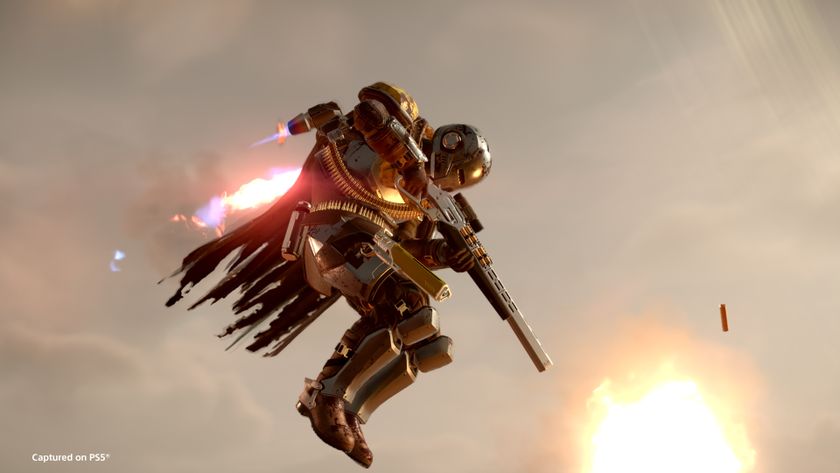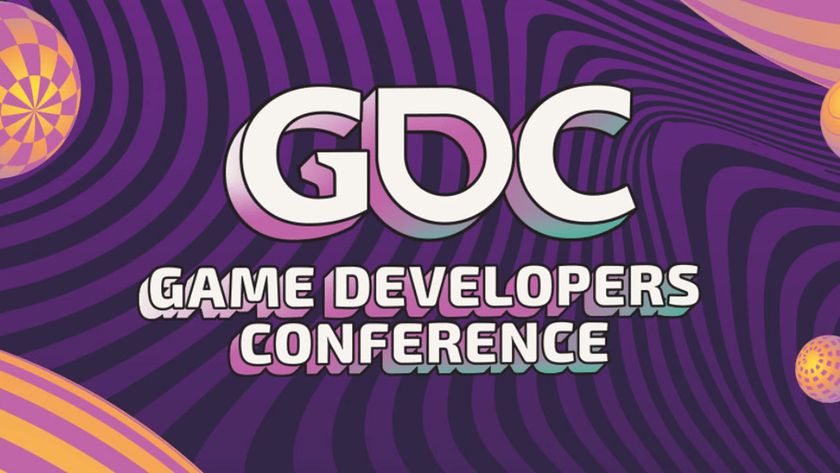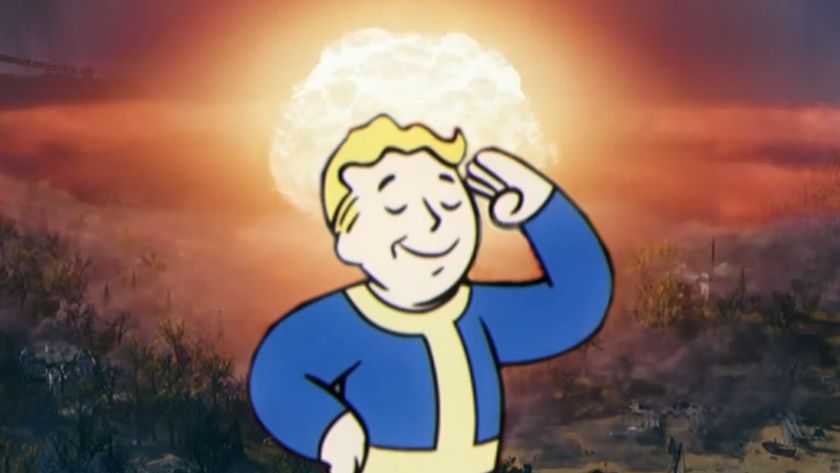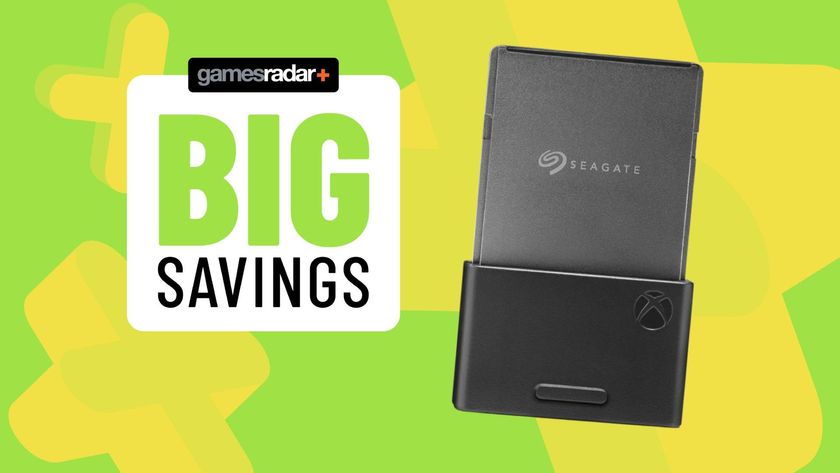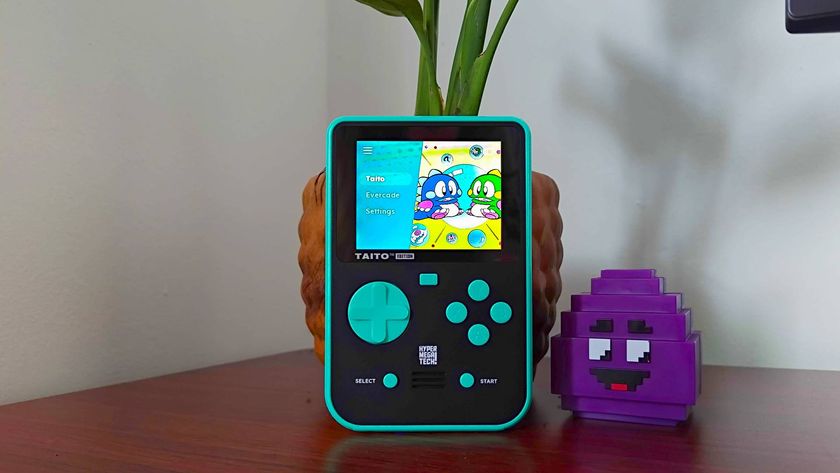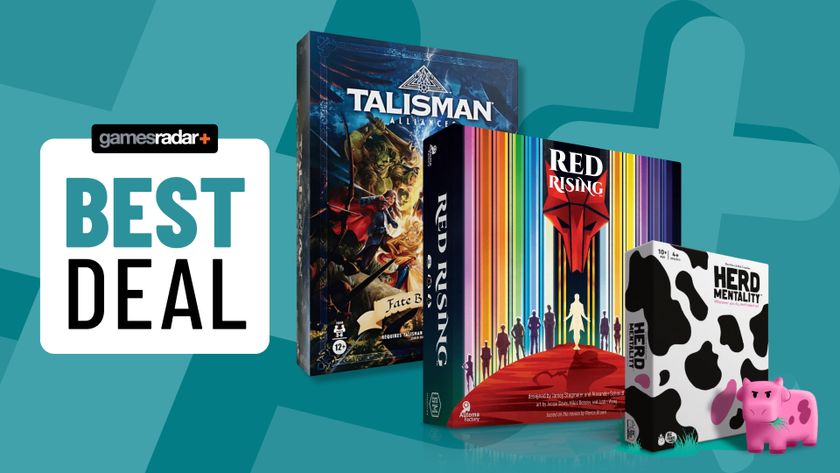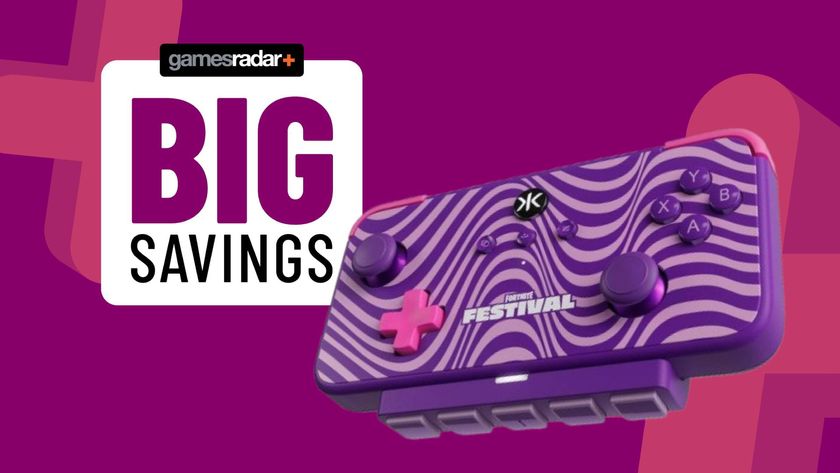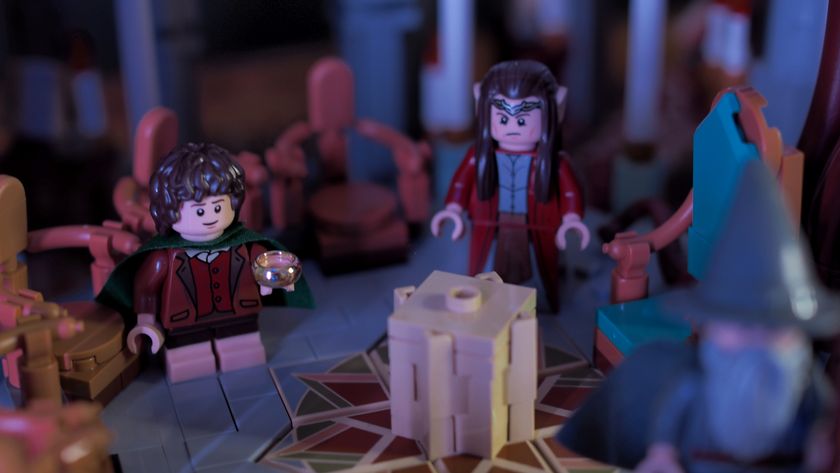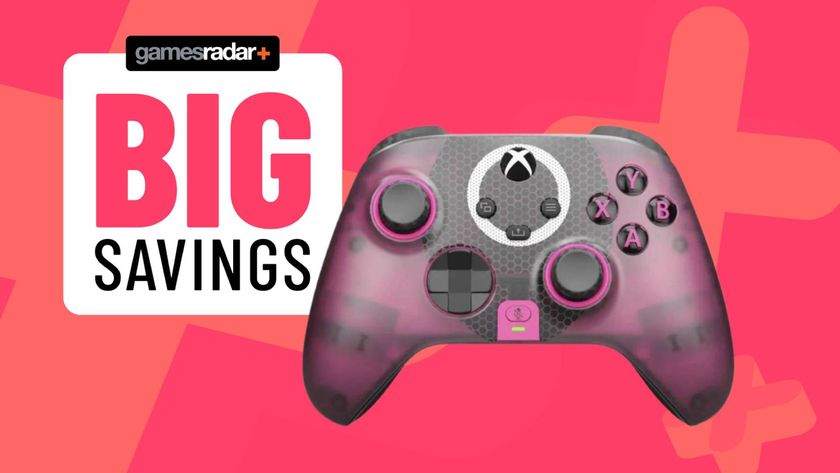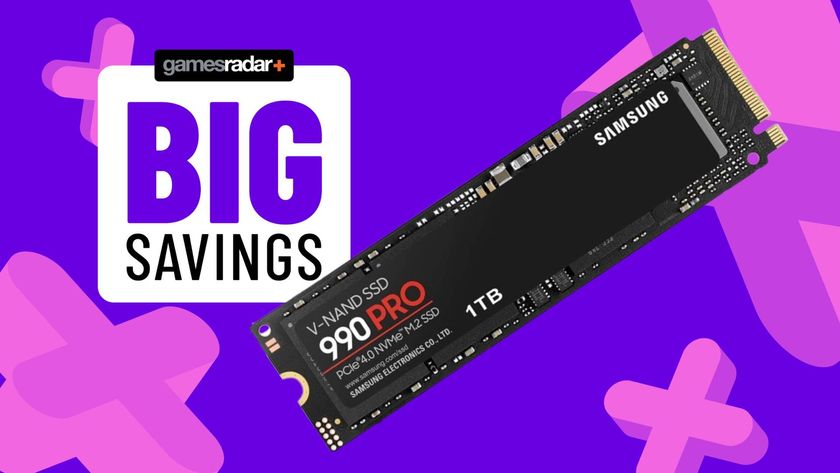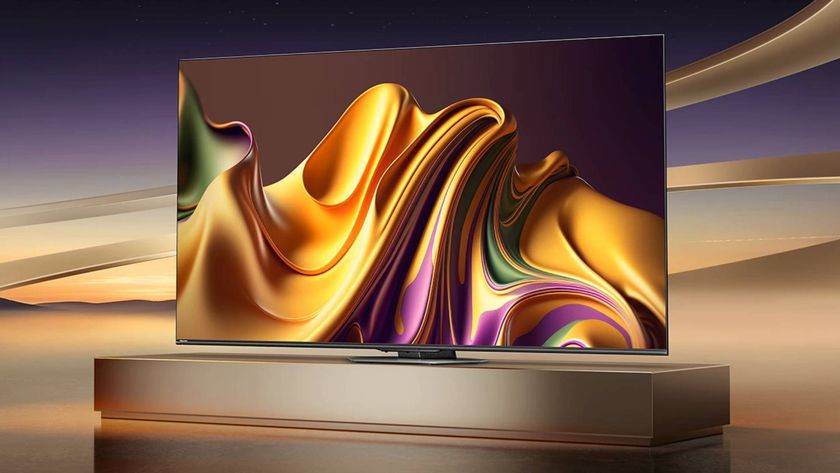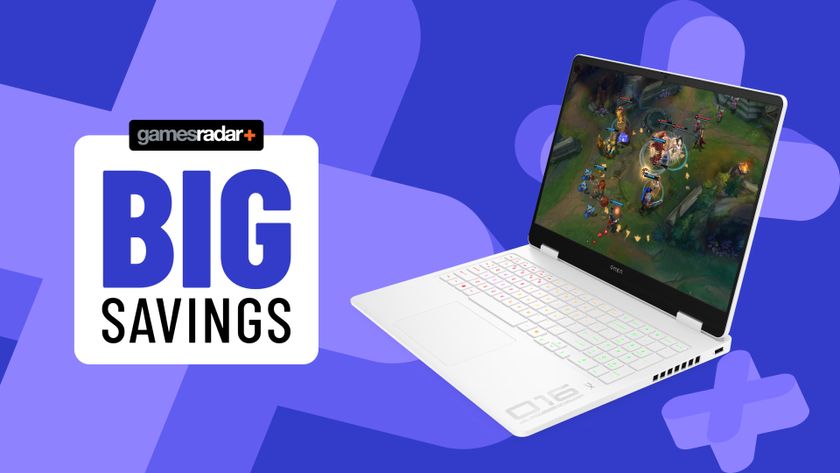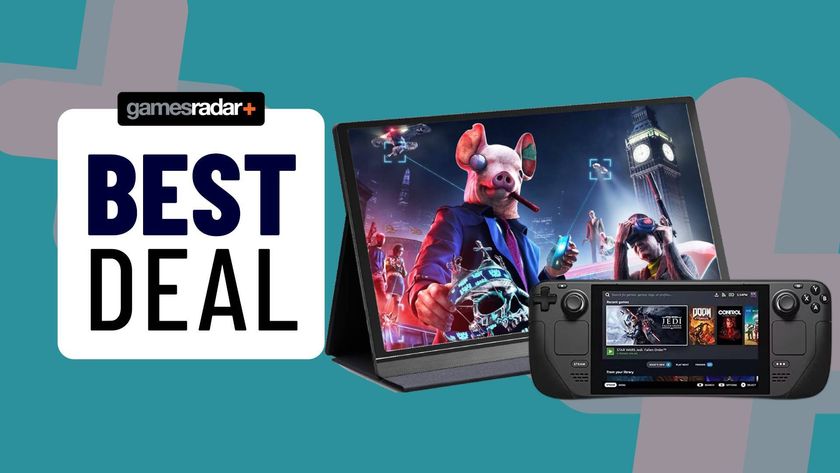Wii U review - One year later
Find out if the system is worth picking up at launch
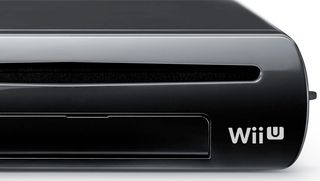
Happy birthday, Wii U
In all the hoopla over the new systems of 2013, it's easy to miss that November 18 is the first anniversary of the Wii U's launch in North America. The home console has gone through much in its first 365 days, hitting its share of high and low points - more low than high, to put it bluntly. After a rough first year, it's high time we updated our Wii U console review to see if it stood the test of time.
Does the Wii U finally have enough quality games to merit a purchase? Does the lack of third-party support spell doom for the machine? And how is Nintendo dealing with online content? We answer all of that, and more...
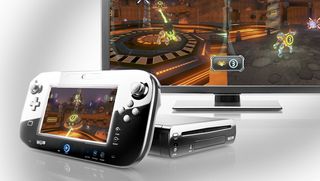
You'll love: Playing games with the GamePad
The GamePad itself is a triumph. Though it's initially cumbersome and awkward, you'll quickly get used to how the controller feels in your hands, and neither the size nor the weight are inconvenient. The touch screen is bright and beautiful, and whether you're using it for inventory management or playing a game without the television (a feature that is genuinely handy), you'll love using it.
But it's how the GamePad is used that really makes the difference. ZombiU's intentionally obtrusive use of the GamePad is monumental in proving how the controller can amplify games by incorporating the strengths and the inherent weaknesses of the controller, such as having to look away from the TV screen during a particularly tense part of ZombiU. Nintendo Land justifies the need for a second screen, showing the variety of ways it could be used in a next-gen Zelda, Metroid, or Pikmin.
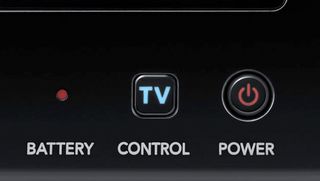
You'll hate: The GamePad's low battery life
Though some of the Wii U's issues can and likely will be addressed as the years go on, the GamePad's battery life will remain a flaw for some time. The huge touch screen comes at a dire cost, lowering the battery life to only a few hours, meaning you'll need to remain tethered if you're planning on playing for a while. It's not too problematic right now, as none of the games are as long as a typical Zelda or Metroid - but it's not hard to imagine how frustrating it will be as lengthier games are released.
You can change the screen brightness to wring more time out of the controller, and the long, light charging cable prevents this from being a deal-breaker. It's far from a permanent solution though, and it'll take a redesign or third-party solution to actually solve this problem.

You'll love: It finally has a worthwhile library
The Wii U launched with quality software like Nintendo Land and New Super Mario Bros. U, but the system went through a terrible release drought in the first half of 2013. Yes, Lego City Undercover was good, but that was basically all that was released until mid-summer. But the remainder of the first year finally gave the system's library some respectability, and it looks to continue into the near future.
Pikmin 3, Wind Waker HD, and Super Mario 3D World are the type of Game of the Year contenders you expect from the Nintendo brand, while Sonic: Lost World, Wonderful 101, and Scribblenauts Unmasked all offer up some fun that's exclusive to the console. With games on the horizon like Donkey Kong Country: Tropical Freeze and Bayonetta 2, the Wii U has a number of exclusive games that are the envy of early PS4 and Xbox One adopters.

You'll hate: Waiting between Nintendo releases
Unfortunately, all those exclusives listed on the previous slide are also emblematic of Wii U's most glaring fault: a lack of good content not published by Nintendo. You'll be lucky if a major franchise like Assassins Creed or Call of Duty bothers to release a sloppy port to the Wii U, let alone create anything original and/or worthwhile for the console. That leaves the responsibility to Nintendo to publish good content, which it's (at best) been doing about once every month or so. The time in between can feel pretty empty.
Nintendo diehards will recall a similar issue with GameCube and N64, and those systems had some of the best games of their generation, so we can hope the wait between Nintendo releases on Wii U games will have a similar payoff. But as it stands now, your Wii U will go back to collecting dust in between every Mario, Zelda, or other franchise release. Then again, it's hard to believe you'd even purchase a Wii U for something other than Nintendo exclusives.
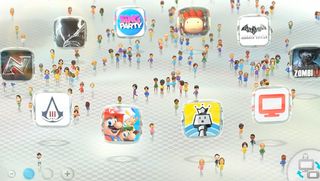
You'll love: Watching the Miiverse grow
The past two generations saw Nintendo fall laughably behind the competition when it comes to online functionality. While the Wii U still doesn't provide the same experience that the Xbox 360 and PlayStation 3 do (let alone the Xbox One or PS4), it sidesteps the entire situation with the inclusion of the Miiverse. This application effortlessly blends online functionality with social networking in a way that makes sense, turning each game into a message board and allowing players to comment, draw pictures, and enjoy gaming together. And it has only gotten stronger over the last year.
Miiverse has the potential to be just as compelling and important as Achievements were for Microsoft, and it has been showing it with players sharing opinions and gameplay tips across games like New Super Mario Bros. U and Pikmin 3. Nintendo has expanded that functionality by creating communities for popular upcoming games like Super Smash Bros.. Being able to leave game notes to friends as you progress is a step forward, and makes checking a buddy's Achievement list feel archaic.

You'll hate: Third parties dont take advantage of the systems powers
Though Nintendo's games have fantastic Miiverse integration and often take full advantage of the GamePad, that's not true for multiplatform games. Rayman Legends and Scribblenauts are rare cases of using a second screen well, but virtually no other third-party release bothers using the GamePad for anything more than a map. Then again, an average port of Assassin's Creed 4 is better than nothing, because Wii U owners are seeing franchises like Battlefield, Metal Gear Solid, and Madden completely skip the console. The Wii U has great potential, but third party publishers are failing to recognize it.
And it doesn't look like it'll be getting any better in the future. Ubisoft continues to support the system, but Activision and Warner Bros. Interactive are definitely pulling back. Meanwhile, publishers like EA, Konami, and Capcom seem completely uninterested in supporting the Wii U, a situation that will likely get worse before it gets better (if it gets better). If you want to play anything other than Nintendo games for the next five years, you probably shouldn't make the Wii U your only system.
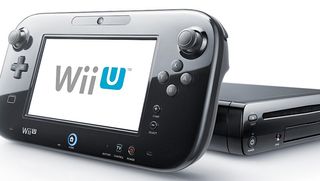
Should you buy it?
Well, that depends. The system finally has a good dozen games that are worth playing, with more major releases on the way. If you've got people to play it with, the system has some of the better local multiplayer releases in recent memory. For fans of Nintendo franchises, this is easily enough to justify a purchase.
However, Wii U really shouldn't be the only system you own, because at the moment only a handful of multiplatform games come to it. And it's hard to imagine that the situation will improve with publishers shifting focus to more powerful consoles like PS4 and Xbox One. The best current scenario for most consumers is to buy a primary system first and get Wii U so you'll be sure you won't miss any of the great games Nintendo's been publishing lately.

Looking to the future
Consoles have changed dramatically over the past two decades. With updates to firmware and new game releases, a system can go from utterly ignorable to must-own overnight (and vice versa). Because of this, we're going to update this review whenever a big change comes, giving you the most up-to-date verdict we can.
And if you're looking for more Wii U musings, check out the best Wii U games list and the top 7 reasons the Wii U might win the next console generation.

Henry Gilbert is a former 12DOVE Editor, having spent seven years at the site helping to navigate our readers through the PS3 and Xbox 360 generation. Henry is now following another passion of his besides video games, working as the producer and podcast cohost of the popular Talking Simpsons and What a Cartoon podcasts.
